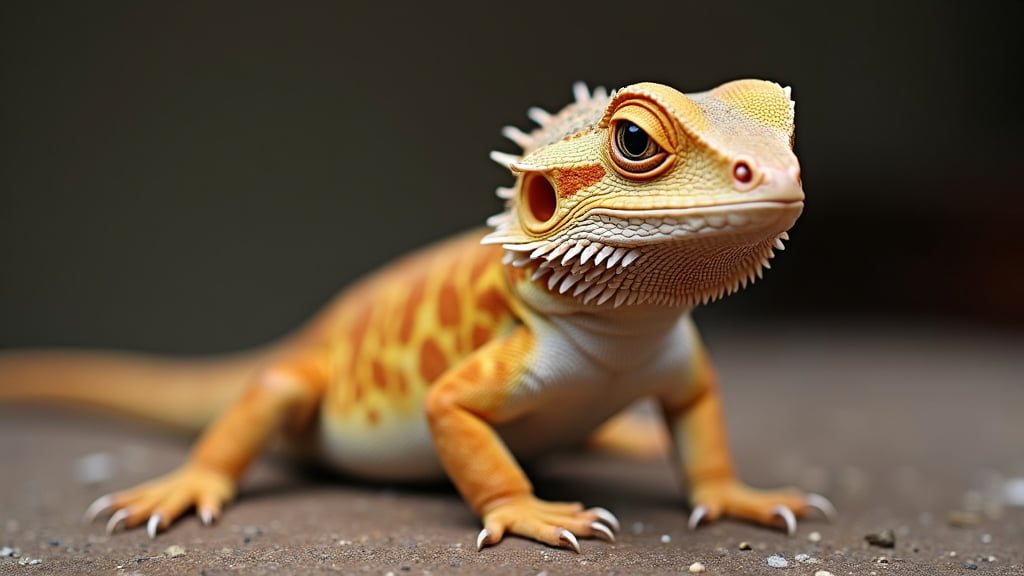Emergency Care for Bearded Dragons
Introduction
If you’re a proud owner of a bearded dragon, you know how fascinating and full of personality these reptiles can be. However, like all pets, they can occasionally face health emergencies. Knowing how to handle these critical situations can make all the difference. In this post, we’ll dive deep into emergency care for bearded dragons, providing you with essential knowledge to help your scaly friend in a crisis.
Common Bearded Dragon Emergencies
Impaction
Impaction is one of the most common emergencies in bearded dragons. This occurs when your dragon ingests a substance that it cannot pass through its digestive system, leading to a blockage.
Symptoms of Impaction
- Lack of appetite
- Swollen stomach
- Lethargy
- Difficulty in moving hind legs
How to Respond
First and foremost, try to gently massage their belly to assist the passage of the blockage. If no improvement occurs in 24 hours, it’s essential to seek veterinary assistance. Additionally, always ensure your dragon’s substrate is free from loose particles that could cause impaction.
Dehydration
Dehydration could easily become a serious health concern if not addressed promptly. Bearded dragons require a well-maintained hydration routine.
Symptoms of Dehydration
- Sunken eyes
- Wrinkled skin
- Decreased elasticity in the skin
- Less frequent defecation
Immediate Actions
Give your bearded dragon a lukewarm bath for 15-20 minutes. Ensure they drink by gently spraying water on their snout. A reptile electrolyte solution could also help replenish lost fluids. However, chronic dehydration should be discussed with a vet to rule out any underlying health issues.
Respiratory Infections
Respiratory infections in bearded dragons can quickly become life-threatening if not treated immediately. These infections are often driven by poor husbandry conditions.
Symptoms of Respiratory Infections
- Wheezing or clicking noises
- Mucus around the mouth and nostrils
- Lethargy
- Open-mouth breathing
Emergency Measures
First, increase the enclosure temperature slightly to help their immune system. If the symptoms persist, contact your vet for appropriate antibiotic treatments. Often, these infections result from suboptimal living conditions; always ensure the habitat is clean and properly humidified.
First Aid Kit Essentials for Bearded Dragons
Thermometer and Hygrometer
Maintaining the correct temperature and humidity levels is vital for your beardie’s health. An accurate thermometer and hygrometer can help you keep an optimal environment.
Reptile Electrolyte Solution
This can be invaluable for hydration emergencies. Always keep some on hand for situations where your dragon refuses to drink or is displaying dehydration symptoms.
Tweezers and Sterilised Gloves
Use these for safely handling your dragon during an emergency without causing further stress or injury. Tweezers can also help in removing any foreign objects causing distress.
Antiseptic Solution
An antiseptic solution, specifically safe for reptiles, is necessary for treating minor cuts or abrasions to prevent infections.
Preventative Measures
Prevention is always better than cure, especially when it comes to the well-being of your bearded dragon.
Proper Diet
A well-balanced diet can prevent many health issues. Ensure they consume a mix of live insects and fresh vegetables to keep their digestive system healthy.
Correct Enclosure Setup
Ensure the enclosure has the correct temperature gradient, UVB lighting, and proper substrate. Regularly clean their habitat to avoid bacterial build-up and respiratory problems.
Conclusion
Being well-prepared and knowledgeable is key to handling emergencies with bearded dragons. From impaction and dehydration to respiratory infections, understanding the symptoms and knowing the first steps to take can save your pet’s life. Always keep essential first aid items on hand and maintain optimal care routines to prevent emergencies from arising in the first place. If ever in doubt, never hesitate to consult a veterinarian experienced with reptiles.
Remember, the well-being of your bearded dragon is in your hands. By being proactive and attentive, you can ensure a healthy, happy life for your reptilian companion.
For further reading, check out our detailed guide on bearded dragon diet and comprehensive enclosure setup tips.
Stay informed and keep your beloved bearded dragon safe and healthy!




